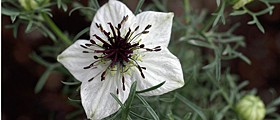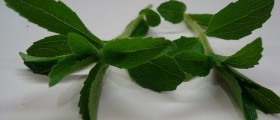
About feverfew
Feverfew, also known by its Latin names Tanacetum parthenium or Chysanthemum parthenium, is a traditional herb grown for both medicinal and decorative purposes. It is widely used in traditional medicine and it has a very important role in treatment of many different health problems.
This herb is native to Eurasia and it is commonly found in the Balkans, Anatolia and Caucasus. Today, due to cultivation, it is also grown in other parts of Europe, especially the Mediterranean region, as well as in Northern and Southern America. Feverfew, which gets its name from the Latin word „febrifugia“, meaning „fever reducer“, belongs to the sunflower family and usually grows up to 18 or 20 inches in height. Its flowers smell similarly to citrus and the flowers look a lot like daisies.
Medicinal uses of feverfew
Feverfew is known for its anti-inflammatory, vasodilator, febrifuge and antirheumatic properties. It also acts as a uterine stimulant and a digestive enhancer. Some people use it as a migraine prophylactic too.
Feverfew is particulalry popular as a medicine against migraine and headache. It not only alleviates the pain, but it also treats its cause, especially in case of migraines. This herb inhibits the release of serotonin and of prostaglandins, which results in reduction of inflammation and relaxation of blood vessels, which all in turn leads to less pain.
Feverfew is also helpful with inflammatory conditions such as arthritis and it can be used to treat high blood pressure, fever, lack of appetite, digestion problems, stomach cramps, tinnitus, dizziness, kidney problems, painful menstrual periods, psoriasis, rheumatism, toothache, dermatitis, cough, respiratory infections like cold and flu, and even some parasitic infections.
Side effects of feverfew
Practically all medicinal herbs contain components that are beneficial if taken in certain amount, but if that amount is exceeded, they can have adverse effects on the health. Feverfew is no exception, and its side effects may include nausea, vomiting, diarrhea, ulcers, temporary loss of taste and ulcers. There may also be indigestion, abdominal pain, swelling of the lips, tongue and mouth and flatulence. The use of feverfew should be discontinued if any of these side effects appear.
People who use blood thinners or who have bleeding disorders should avoid feverfew, and the same applies on pregnant and nursing women, infants and toddlers.
If taken in form of capsules, the recommended daily dosage of feverfew is from 50 to 200 milligrams, two times a day, and in form of tincture with 25% alcohol five to 20 drops two times a day.

















Your thoughts on this
Loading...